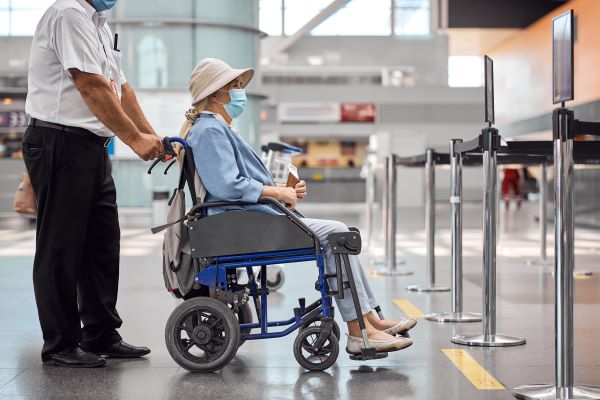Traveling can be an enriching and fulfilling experience, but it can also be challenging for individuals with disabilities. However, with the right knowledge and resources, it is possible to have a smooth and enjoyable trip. In this blog post, we will discuss various tips and resources on how to travel with disabilities. Whether you have a physical, sensory, or cognitive disability, these tips and resources will help you plan and navigate your travels with confidence. So, let’s dive in and discover how you can make your next trip an unforgettable experience.
Understanding Your Rights as a Traveler with Disabilities
When traveling with disabilities, it’s essential to know that various laws and regulations are designed to protect your rights. In the United States, the Americans with Disabilities Act (ADA) requires transportation providers, hotels, and other public accommodations to make their services accessible. Similarly, the Air Carrier Access Act prohibits discrimination against travelers with disabilities and mandates airlines to accommodate their needs. Globally, many countries have their own regulations, such as the European Union’s rights for disabled passengers. Familiarizing yourself with these laws before your trip can empower you to advocate for your needs and ensure a barrier-free travel experience.
Planning and Booking Your Trip: Accessibility First
When planning and booking your trip, prioritizing accessibility is key. Start by researching destinations known for being disability-friendly. Websites and forums such as TripAdvisor and Lonely Planet’s Thorn Tree forum can offer insights from other travelers with disabilities. When booking hotels, flights, and activities, directly inquire about accessibility features and accommodations. Consider using specialized travel agencies that focus on accessible travel to assist in finding accommodations and transport that meet your specific needs. Booking in advance allows you to secure the most accessible options and gives providers time to prepare for your arrival, ensuring a smoother travel experience.
Packing Essentials for Travelers with Disabilities
When preparing for travel, individuals with disabilities should pack with both necessity and comfort in mind. Include any medical equipment, medications, and a copy of your prescriptions. Consider portable ramps or mobility aids if your destination might not be fully accessible. Remember to bring any specialized utensils or adaptive devices you use daily. It’s also wise to pack a small repair kit for quick fixes to mobility aids. Organize important documents, including emergency contacts and medical information, in an easily accessible place. Labeling your belongings with your name and contact information can also aid in their recovery if misplaced.
Navigating Airports and Public Transportation
Navigating airports and public transportation requires preparation and awareness. Contact airlines or transit authorities ahead of your trip to request assistance, such as wheelchair services or guided help through terminals. Familiarize yourself with the layout of the airports and stations you’ll be using to find elevators and accessible restrooms. Use apps and online resources to stay updated on schedules and service changes. Consider off-peak travel times for less crowded conditions, making movement and transfers easier. By arranging assistance in advance and staying informed, you can navigate public transportation systems more smoothly and confidently.
Discovering Accessible Destinations and Activities
When seeking out accessible destinations and activities, focus on those known for their inclusivity and accommodation options. Utilize travel blogs, disability-focused websites, and social media groups dedicated to accessible tourism for recommendations. Many cities and tourist spots now offer detailed accessibility guides and have adapted tours, attractions, and public spaces to be more inclusive. Engage with local tourism offices for up-to-date information on accessible attractions and events. Exploring destinations that prioritize accessibility not only ensures a more enjoyable trip but also supports communities that value inclusivity.
Empowering Resources and Technology for Travelers with Disabilities
In the digital age, technology plays a pivotal role in enhancing the travel experience for individuals with disabilities. Apps such as AccessNow and Wheelmap provide user-generated reviews and maps of accessible venues worldwide. For those with visual impairments, apps like Be My Eyes connect users with volunteers for visual assistance through live video. Voice-activated devices and mobile apps can also offer assistance with navigation, translation, and managing accommodation or transportation bookings. Embracing these technological tools and resources can significantly reduce barriers, offering greater independence and peace of mind while traveling.






